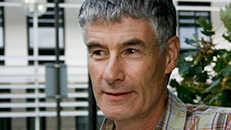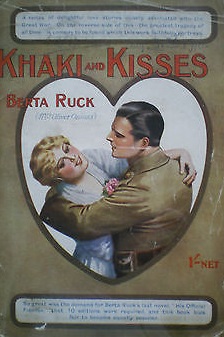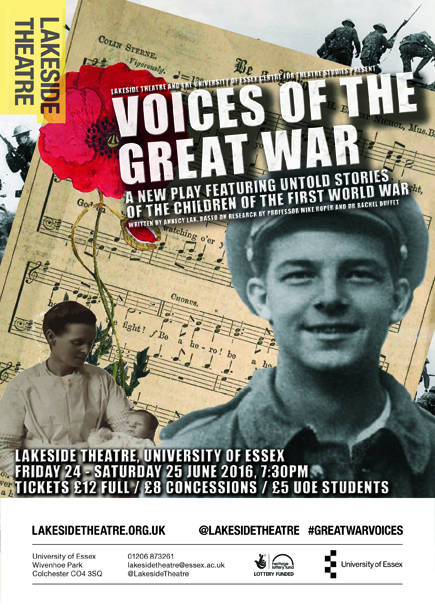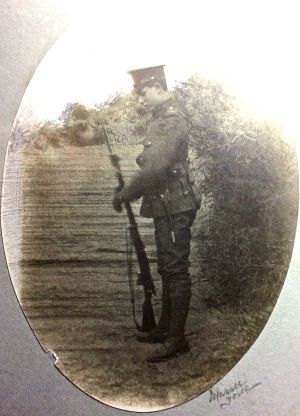Contributed by Michael Roper (Centre Member and Professor of History at University of Essex)
In his last post, Michael Roper wrote about the Centre’s screening of ‘Children of the Great War’ at the University of Essex. Preparations are now underway for a follow up event, a Children of the Great War collection day. In his latest post, Michael reflects on some of those preparations:
Monday 22nd June
Monday started off with a bang when, at short notice, the publicity people at Essex managed to get us a slot on Radio Essex to talk about ‘Children of the Great War’. A local resident, Hedley Green, joined us. His father was a sergeant in the ASC and his mother joined the Women’s Auxiliary Corps and helped run an officer’s canteen in France. We talked about the reasons why, for much of their lives, this generation was reluctant to talk about the First World War, and why it might have been, however, that some wrote accounts later in life. The radio broadcast was followed by an interview with a journalist from the Colchester Gazette – we’re hoping for a feature on family legacies of the First World War with some publicity for our collection day.
Tuesday 23rd June
I’ve been on the phone to people who heard the Radio Essex broadcast, and some interesting stories are coming forward. One caller has a sepia photo of her father on horseback which was subsequently turned into a watercolour painting. Having not talked about the war as a younger man, her father wrote a memoir late in life which his daughter-in-law then typed up. Another caller explained that it was only when preparing for his first overseas holiday in Spain in the early 1960s, that he learned his father had served in France during the war.
Thursday 25th June
Rachel Duffett and I have been busy getting our flyer out for the collection day on 18th July, and thinking about how to reach people who have family connections to the war. Along with the usual suspects, we’re going to try and target Day Centres and adult education. We’re also thinking about how we want to run the day itself. Part of the excitement of the project is that we can’t be sure what objects people might bring in. Rather than judge which ones to digitise on the basis of their supposed ‘historical significance’, we’ve decided that we’d like participants to choose, and talk about, the two or three objects that they feel are most significant to them.





